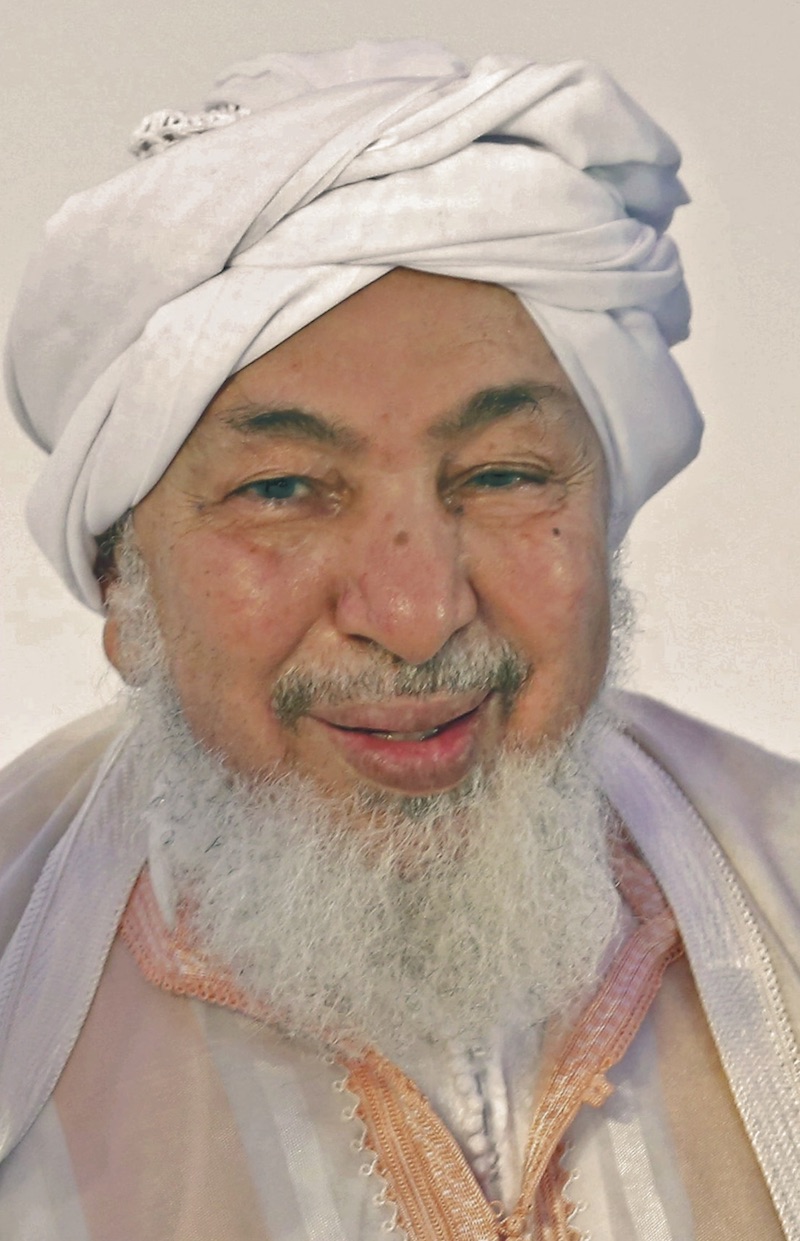Sheikh Abdullah bin Bayyah is one of the world’s most respected Muslim scholars, widely recognised for his deep Islamic scholarship, piety, and global advocacy for peace. Uniquely, his authority transcends divisions within the Muslim world—he is held in esteem by Sunnis across various schools, Sufis, and even by Salafi institutions. This rare stature allows him to play a pivotal role in fostering dialogue within the Muslim world and with global religious communities.
Birth: 1 May 1935 (Age: 90)
Source of Influence: Scholarly
Influence: Significant influence as a leading contemporary scholar of Islamic Jurisprudence
School of Thought: Sunni, Traditional Sunni, Maliki
Status: Featured in current year
Sheikh Abdullah bin Bayyah is one of the world’s most respected Muslim scholars, widely recognised for his deep Islamic scholarship, piety, and global advocacy for peace. Uniquely, his authority transcends divisions within the Muslim world—he is held in esteem by Sunnis across various schools, Sufis, and even by Salafi institutions. This rare stature allows him to play a pivotal role in fostering dialogue within the Muslim world and with global religious communities.
Early Life and Education: Born in 1935 in Timbédra, Mauritania, Sheikh bin Bayyah was raised in a household renowned for scholarship. His father, Sheikh Mahfoudh bin Bayyah, chaired the Conference of Mauritanian Scholars established after independence, instilling in him a lifelong dedication to Islamic learning. He studied in Mauritania’s traditional mahadhir (centres of learning), where students immersed themselves in the full spectrum of Islamic sciences.
Judicial and Academic Career: Sheikh bin Bayyah rose to prominence as a jurist and statesman. He served as a Judge at the High Court of Mauritania, later becoming Head of Sharia Affairs at the Ministry of Justice. His dual expertise in both classical Islamic law and contemporary governance earned him respect in policy and legal circles. After moving to Saudi Arabia, he became an instructor at King Abdulaziz University in Jeddah, where he trained a generation of scholars. His fatwas, often disseminated through Saudi institutions, are considered authoritative across much of the Muslim world. He also served as Deputy Head of the International Union of Muslim Scholars, working alongside Sheikh Yusuf al-Qaradawi before resigning in 2013 and in 2018, he was appointed Chair of the UAE Fatwa Council,
Author and Thinker: Sheikh bin Bayyah has written extensively on Islamic legal theory, modern jurisprudence, and minority rights (fiqh al-aqalliyat). His works provide guidance for Muslims living in non-Muslim-majority countries, offering a framework for faithful living while engaging positively in pluralistic societies. His writings on maqasid al-shariah (the higher objectives of Islamic law) emphasise justice, mercy, and the preservation of life and dignity—principles that underpin his calls for peace and coexistence.
Diplomat and Global Advocate: Bin Bayyah is an active member of the International Islamic Fiqh Academy, the jurisprudential body of the Organisation of Islamic Cooperation (OIC), which advises Muslim states on religious and ethical matters. His influence extends into diplomacy: in 2013, he visited the White House, where he urged stronger protection for civilians in Syria and Myanmar. That same year, he met Bill Gates during the Global Vaccine Summit in Abu Dhabi, signalling his commitment to humanitarian causes beyond strictly religious matters.
Peacebuilding and Interfaith Initiatives: Sheikh bin Bayyah is the driving force behind the Forum for Promoting Peace in Muslim Societies (founded in Abu Dhabi, 2014), which brings together Islamic scholars to counter extremism and foster peaceful coexistence. He also founded the Muslim Council of Elders, which includes senior religious authorities such as the Grand Imam of Al-Azhar. Among his most notable contributions is the Marrakesh Declaration (2016), which affirmed the rights of religious minorities in Muslim-majority nations, drawing inspiration from the Prophet Muhammad’s ﷺ Charter of Medina. In 2019, he launched the New Alliance of Virtue, reviving the Prophet’s ﷺ pre-Islamic pact of Hilf al-Fudul as a model for interreligious solidarity. These initiatives promote shared values across the Abrahamic faiths and have been welcomed by Christian and Jewish leaders alike. The American Jewish Committee (AJC), for example, translated his declarations into Hebrew to encourage dialogue in Israel and beyond.
Criticisms and Controversies: Despite his achievements, bin Bayyah has faced criticism, particularly for his close ties with the United Arab Emirates, whose government funds many of his initiatives. Critics argue that his support aligns too closely with the UAE’s foreign policy, especially regarding conflicts in Yemen and Libya. Some view his departure from the International Union of Muslim Scholars and shift toward the UAE as politically motivated. Bin Bayyah and his supporters counter that his mission is to prioritise peace and stability, distancing Islam from violent extremism and sectarian politics.
The Gaza Genocide: Sheikh Abdullah bin Bayyah has condemned Israel for violating the most fundamental principles of humanity and Islamic ethics.
“The destinies of mankind are united, and their pathways are shared because we have all been created from the same clay.”
2 Ministerial posts in the 1970s
250 is the number of religious leaders made who made a statement at The Marrakesh Declaration.
News about Sheikh Abdullah bin Bayyah
- No approved news items yet.



